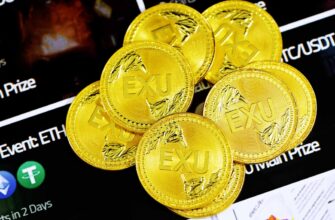- What Is the Malta Gaming Authority (MGA)?
- How Does the MGA Regulate Cryptocurrency in Gambling?
- Benefits of Choosing an MGA-Licensed Crypto Platform
- Steps to Obtain an MGA Crypto License
- Challenges for Crypto Operators Under MGA Regulations
- The Future of Crypto and MGA Regulations
- FAQ: Crypto MGA Regulations
What Is the Malta Gaming Authority (MGA)?
The Malta Gaming Authority (MGA) is a globally recognized regulatory body overseeing gambling activities, including online gaming, sports betting, and cryptocurrency gambling. Established in 2001, the MGA has positioned Malta as a hub for fair and transparent gaming practices. Its rigorous licensing process and proactive approach to emerging technologies, like crypto, make it a trusted name in the industry.
How Does the MGA Regulate Cryptocurrency in Gambling?
The MGA integrates cryptocurrency into its regulatory framework through strict guidelines designed to protect players and ensure platform integrity. Key aspects include:
- Licensing Requirements: Crypto gambling platforms must obtain an MGA license, which mandates adherence to anti-money laundering (AML) laws, data protection standards, and game fairness.
- Compliance with VFAA: The Maltese Virtual Financial Assets Act (VFAA) governs crypto transactions, requiring platforms to register with the Malta Financial Services Authority (MFSA) alongside MGA licensing.
- Player Protection: The MGA enforces responsible gambling measures, such as deposit limits and self-exclusion tools, even for crypto-based platforms.
Benefits of Choosing an MGA-Licensed Crypto Platform
Opting for an MGA-licensed crypto gambling site offers several advantages:
- Enhanced Security: Licensed platforms use advanced encryption to safeguard user data and crypto transactions.
- Fair Gaming: The MGA mandates regular audits of Random Number Generators (RNGs) to ensure unbiased outcomes.
- Legal Compliance: Operators must follow AML and KYC protocols, reducing fraud risks.
- Global Trust: An MGA license boosts credibility, attracting international users.
Steps to Obtain an MGA Crypto License
Securing an MGA license for a crypto gambling platform involves:
- Incorporating a Maltese company and appointing local directors.
- Submitting a detailed application with business plans, AML policies, and technical documentation.
- Passing audits for game fairness, security, and financial stability.
- Paying licensing fees, which vary based on revenue and services offered.
Challenges for Crypto Operators Under MGA Regulations
While the MGA provides clarity, challenges include:
- High compliance costs for audits and legal processes.
- Navigating dual oversight from the MGA and MFSA.
- Adapting to evolving regulations as crypto technology advances.
The Future of Crypto and MGA Regulations
Malta aims to maintain its leadership in crypto gambling by:
- Expanding regulations to cover NFTs and DeFi integrations.
- Enhancing cross-border collaboration to combat unlicensed operators.
- Promoting blockchain transparency tools for real-time compliance monitoring.
FAQ: Crypto MGA Regulations
1. What is the MGA’s role in crypto gambling?
The MGA licenses and regulates platforms using cryptocurrency, ensuring compliance with AML, fairness, and player safety standards.
2. How do I verify an MGA license?
Check the MGA’s official registry using the license number displayed on the operator’s website.
3. Why choose an MGA-licensed crypto platform?
It guarantees legal compliance, security, and fair play, reducing risks for users.
4. Can MGA-licensed sites operate globally?
Yes, but they must also comply with local laws in the user’s jurisdiction.
5. Are crypto transactions taxed under MGA regulations?
Malta does not tax crypto gains, but operators must report transactions for AML purposes.








